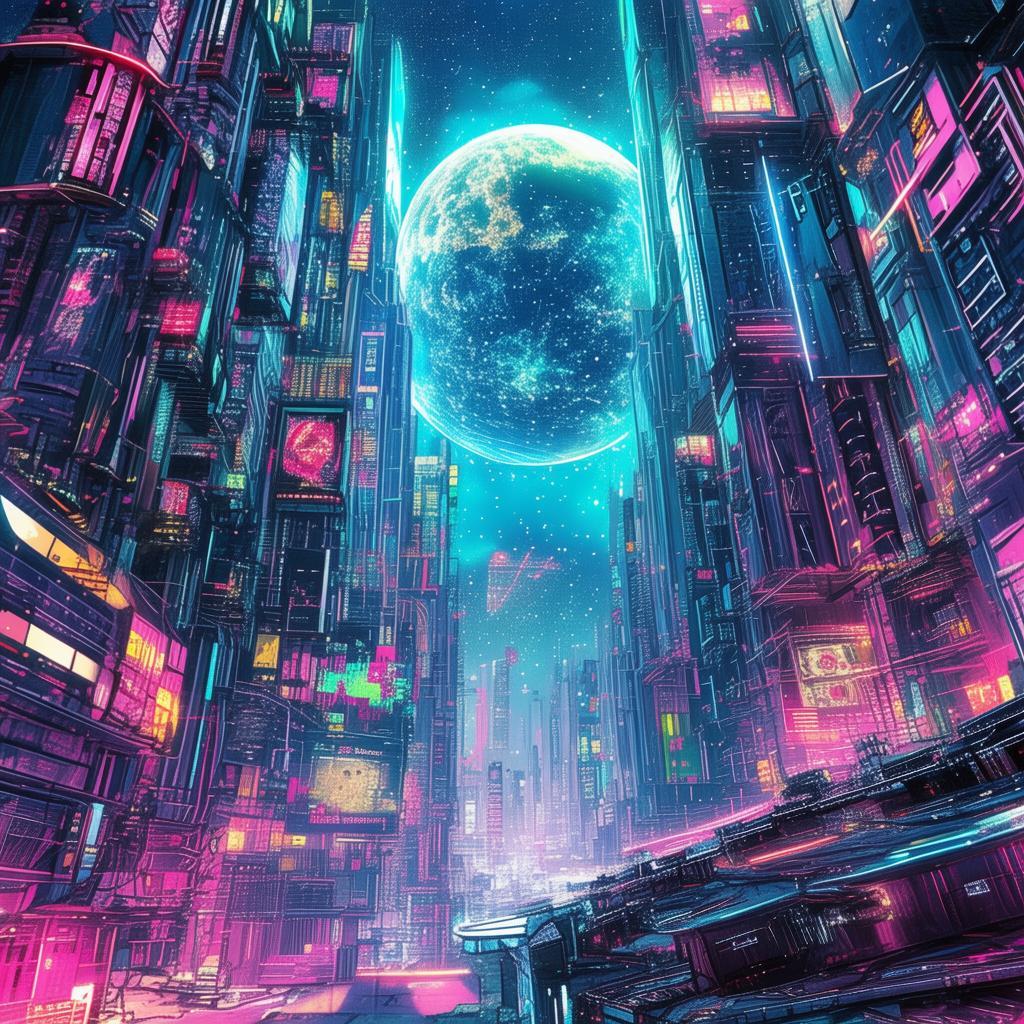The Neon Carnival's Dilemma
In the heart of the Neon Carnival, where the neon lights flickered with the rhythm of the city's pulse, a virtual reality game called The Rider's Gear had become an urban legend. The game was a creation of the tech giant, NeoTech, which promised an immersive experience like no other. Players would strap on the Rider's Gear, a sleek, futuristic helmet that would transport them into a neon-drenched race through the virtual streets of a dystopian future.
The carnival was a cacophony of sounds and sights, a chaotic blend of human and mechanical life. The air was thick with the scent of fried popcorn and the buzz of neon signs. The Rider's Gear booth was a stark contrast, shrouded in darkness with only the glow of a few neon lines peeking through the curtains.
The protagonist, Alex, was a street-smart hacker with a knack for staying under the radar. He had heard whispers of The Rider's Gear, a game that was said to be so realistic that players couldn't tell the difference between the virtual world and reality. Intrigued and slightly skeptical, Alex decided to give it a shot.
He approached the booth, where a holographic assistant greeted him with a cold, calculated voice. "Welcome to The Rider's Gear. You will race through the neon streets of NeoCity, dodging drones and outsmarting AI. But beware, for the rules are simple: win or die."
Alex's heart raced. The challenge was on. He donned the Rider's Gear, and the world around him blurred. In an instant, he was in NeoCity, the neon lights swirling around him like a kaleidoscope. The city was a chaotic mix of towering skyscrapers, neon signs, and a constant hum of activity.
The race began, and Alex found himself weaving through the streets, dodging drones that seemed to have a mind of their own. The game was a test of reflexes, strategy, and a bit of luck. As he progressed, the game became more intense, the obstacles more dangerous, and the stakes higher.
The game designers had gone to great lengths to make The Rider's Gear as realistic as possible. The virtual world was so convincing that Alex found himself questioning his own reality. The neon lights seemed to pulse with the same rhythm as his own heartbeat. The sounds of the city were so vivid that he could almost taste the air.

But as the race wore on, Alex began to notice something unsettling. The virtual drones were too aggressive, the obstacles too unpredictable. He felt a chill run down his spine, a sense that the game was taking on a life of its own. He realized that the game was no longer just a challenge; it was a test of character.
In the midst of the race, Alex encountered a moral dilemma. He was chasing a drone that was about to collide with a civilian in the virtual world. The choice was clear: he could either avoid the drone and risk losing the race, or he could take the hit and potentially end the life of the civilian.
The game had become a mirror, reflecting Alex's own moral compass. He had always believed in the importance of choice, even in the most dire of situations. But now, he was faced with a choice that could have real-world consequences. The game was no longer just a virtual experience; it was a glimpse into the future of virtual reality.
As Alex made his decision, the virtual world seemed to hold its breath. He chose to take the hit, sacrificing his own chance at victory for the sake of the civilian. The game designers had anticipated this scenario, and the virtual world responded with a shockwave that knocked Alex unconscious.
When Alex awoke, he found himself back in the carnival, the Rider's Gear still on his head. The holographic assistant was standing before him, her voice tinged with a hint of respect. "You have shown remarkable courage, Alex. You have passed The Rider's Gear."
The words hung in the air, and Alex felt a strange sense of accomplishment. He had faced a moral dilemma in the virtual world and made a choice that could have real-world consequences. The game had become a metaphor for the future of virtual reality, a world where the line between virtual and reality was increasingly blurred.
As the Neon Carnival continued to thrive, the story of Alex and The Rider's Gear spread like wildfire. People began to question the morality of virtual reality games and the potential consequences of blurring the lines between the virtual and the real. The Rider's Gear had become more than just a game; it was a catalyst for change.
In the end, Alex walked away from the carnival with a new perspective on life and technology. He had faced a moral dilemma that had tested his character and left him forever changed. The Neon Carnival's Dilemma had shown him that the choices we make in the virtual world can have real-world implications, and that the future of virtual reality was a responsibility we all shared.
✨ Original Statement ✨
All articles published on this website (including but not limited to text, images, videos, and other content) are original or authorized for reposting and are protected by relevant laws. Without the explicit written permission of this website, no individual or organization may copy, modify, repost, or use the content for commercial purposes.
If you need to quote or cooperate, please contact this site for authorization. We reserve the right to pursue legal responsibility for any unauthorized use.
Hereby declared.









